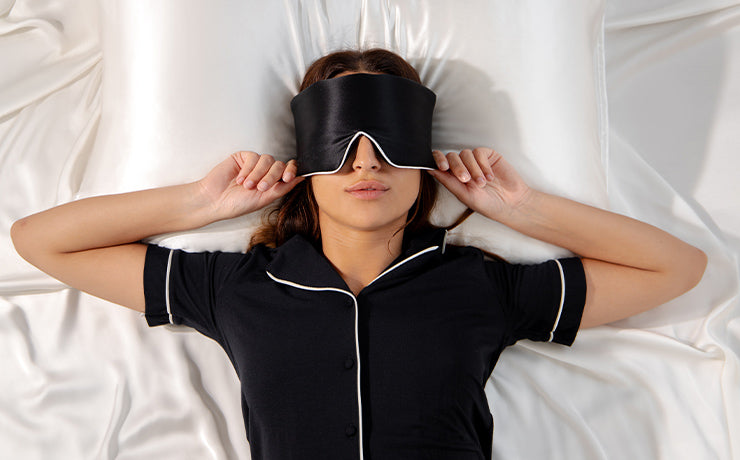How can you tell if you have insomnia?
Every night, when we give ourselves over to sleep, our body and mind engage in an essential activity: nocturnal rest. This precious moment of regeneration goes far beyond a simple break in our hectic daily lives. In fact, it's during our sleep that our brain and body repair and strengthen themselves for the day ahead. The vital importance of sleep to our overall well-being is undeniable. Nevertheless, insomnia can disrupt this harmony. Have you ever questioned the quality of your sleep? How can you recognize the signs of insomnia and act accordingly? Today, we're going to help you find out if you really are affected by this sleep disorder.
Insomnia: what exactly is it?
Ultimately, insomnia is a sleep disorder that can have significant repercussions on health and well-being. It's important to stress that insomnia is not simply a question of sleep quantity, but also of sleep quality. Indeed, even under the right conditions, some people may find it difficult to fall asleep, wake up in the middle of the night without being able to go back to sleep, or wake up too early in the morning. This contributes to their state of fatigue and stress.
What are the possible causes of insomnia in adults?
Sleep disorders are often linked to stress, anxiety and depression. More than half of all cases of insomnia are caused by psychological factors. Whether due to major life events or bad habits, insomnia can become chronic and affect your quality of life.
In addition to psychological causes, sleep-disturbing behaviors such as stimulant consumption, exciting evening activities or exposure to screens can also affect your sleep.
In addition, an irregular pace of life and environmental disturbances such as noise, light or temperature may play a role in your insomnia.
Certain underlying illnesses, such as hyperthyroidism, gastro-oesophageal reflux or restless legs syndrome, can also cause sleep disorders. It is therefore important to identify and treat these different causes to better understand and manage insomnia.

What are the signs that you may be suffering from insomnia?
It's important to spot the signs of a sleep disorder early to prevent it from affecting your daily life, because this problem can be effectively treated.
You wake up frequently at night
Lying awake in the dark, staring at the ceiling, unable to fall asleep, is a frustrating and exhausting experience. If this situation recurs, it may indicate a sleep disorder that needs to be diagnosed. Middle-of-the-night awakenings are common for many insomniacs, but their persistence can reveal more serious health problems such as sleep apnea, stress or other medical conditions. Taking simple measures such as airing out your bedroom, or wearing a black-out sleep mask, can sometimes be enough to help you get back to a restful sleep, but in the event of persistent night-time awakenings, it's crucial to consult a healthcare professional to assess the situation.
You can't get to sleep
The inability to fall asleep, even when you're feeling exhausted, can be a worrying signal of insomnia, plunging some people into deep anxiety. Obstacles to falling asleep can stem from many sources, ranging from stress and anxiety to mood disorders, disordered or deficient sleep patterns and underlying medical conditions. Adopting a regular bedtime routine and creating an environment conducive to rest are essential to promoting sleep.
You can't concentrate!
A lack or poor quality of sleep can have a major impact on your cognitive abilities. Indeed, the fatigue resulting from sleep deprivation will slow down your cognitive abilities, making it difficult to concentrate and memorize information. For example, declarative memory, which is used to recall past events, is often the most affected by sleep deprivation. What's more, in situations such as driving, lack of concentration can become a real danger. So it's vital not to let your condition worsen.
You wake up feeling even more tired
Feeling more tired when you wake up than when you go to bed is absolutely not normal! It's usually a direct consequence of poor sleep quality, with frequent awakenings or difficulty falling asleep. It can also be a sign that your lifestyle isn't right for your body, whether due to a change of pace, overwork or an unbalanced diet. Understanding the cause of insomnia is essential to finding solutions and avoiding persistent fatigue.
Your mood is out of control!
Sleep deprivation is an insidious enemy that can have a profound impact on your mood. When you don't get enough sleep, your emotional balance suffers. You'll be more prone to irritability, mood swings and negative feelings. What's more, the fatigue resulting from lack of sleep can also impair your motivation and ability to concentrate. As a result, you find yourself lacking the energy you need to accomplish your daily tasks, both professionally and personally.






